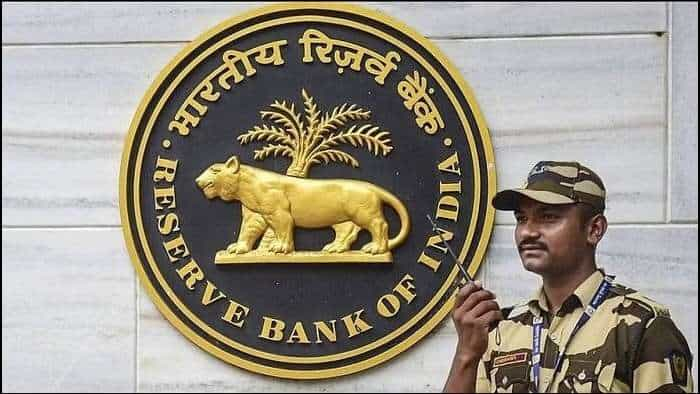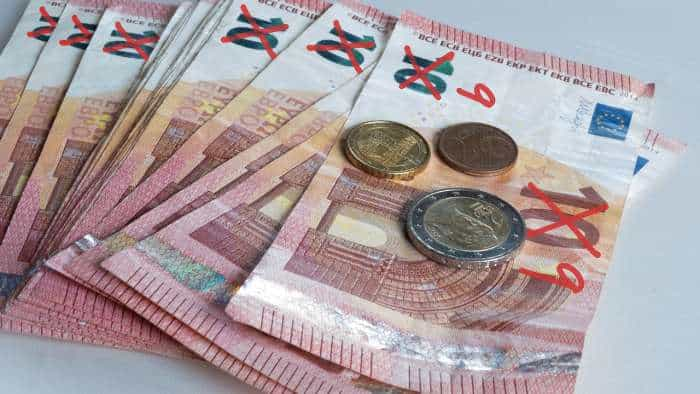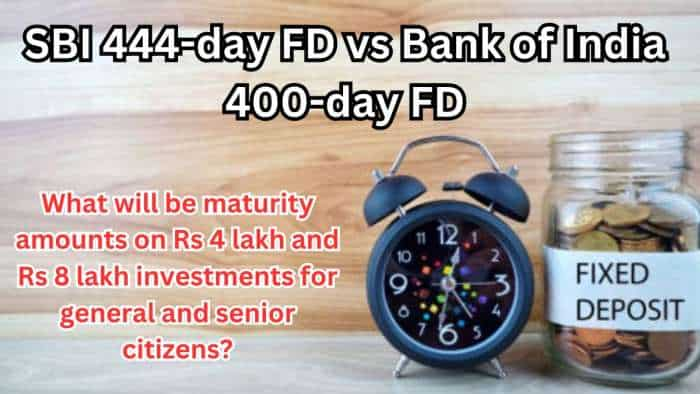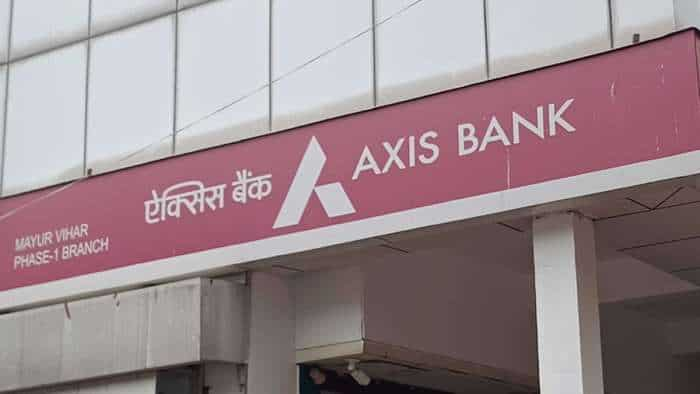Dalal Street Voice: This Dussehra investor should work on evil investing, trading habits: Deepak Jasani of HDFC Securities
He feels valuations in pockets of markets are looking stretched – some of them may be benefitting out of temporary events example - power, coal commodities, while some others may be benefitting out of long-term trends such as EV, platform companies, etc.

Deepak Jasani, Head of Retail Research at HDFC Securities says that key mistakes that investors repeatedly make in the stock markets include, not evaluating one’s own risk appetite and investing as per it, not doing, or adhering to proper asset allocation, and reviewing it at 6 monthly intervals.
He feels valuations in pockets of markets are looking stretched – some of them may be benefitting out of temporary events example - power, coal commodities, while some others may be benefitting out of long-term trends such as EV, platform companies, etc.
Jasani, a market veteran of over 25 years, is a Chartered Accountant by profession. Prior to HDFC securities, Deepak was the Head of Equity Research at Kaji & Maulik Securities Pvt. Ltd. Edited Excerpts: -
Q) What is your call on markets which has managed to survive negative global cues, and is probably all set to hit fresh highs in October?
A) Indian markets have hit a fresh all-time high in the face of some headwinds. Fears of rising inflation, supply disruptions affecting economic growth, China regulatory policies led slowdown, expected withdrawal of monetary stimulus by Central Banks and possible stagflation scenario faced by the world are some fears facing the global equity markets.
India however is benefitting out of seemingly controlled pandemic, the late resurgence in monsoon, series of improving macro numbers, and rising interest of global investors in India as an investment destination – both for FDI and FPI investors.
Valuations in pockets of markets are looking stretched – some of them may be benefitting out of temporary events example - power, coal commodities, while some others may be benefitting out of long-term trends such as EV, platform companies, etc.
The latest upward move in the markets has not seen a large FPI participation but more domestic retail and HNI participation.
These two categories have shown greater maturity in the markets so far in this run, but it would be crucial to monitor their behaviour in case of a larger correction.
At the micro-level, survivors of the disruptions over the last five years who have adapted well will keep doing better going forward as the unorganised portion of the markets is shifting towards organised players.
One will have to track the socio-political ramifications of the unequal rise in the fortunes of businesses, along with the consequent lack of job creation and rising inequality of income and wealth, though this may not play out immediately.
In India the danger of high inflation (due to fuel price rise and supply chain disruptions) and the economy struggling to grow above 6 per cent remains. This can impact equity valuations going ahead at some point.
Q) As we enter the festive seasons with Dussehra around the corner, what is your advice to investors? The festival marks the victory of good over evil – any evil habits in stock market investment/trading which investors should avoid?
A) Key mistakes that investors repeatedly make in the stock markets include, not evaluating one’s own risk appetite and investing as per it, not doing, or adhering to proper asset allocation, and reviewing it at 6 monthly intervals.
Investors also do not spend enough time to study the mood of the markets and company prospects, and not developing stock selection skills.
They also do not follow money management rules – in terms of position sizing and limiting losses per scrip, getting swayed either way in bullish and bearish times, treating luck as skill, etc.
Q) What does the acquisition of the Tata Sons-Air India deal mean for the aviation sector as well as the banking industry?
A) Banks who had lent to Air India were not much worried as Air India is a PSU and had Govt backing.
As far as the aviation sector is concerned, the private airlines who benefitted because of troubles at Air India may feel the heat going forward as a rejuvenated Air India (under new management) will change the competitive landscape.
Q) What is your view on the RBI monetary policy? The governor assured the market that it did not want to rock the boat. When do you see the central bank raising rates in the near future?
A) As widely expected, RBI’s MPC kept the repo rate unchanged at 4% and continued with an accommodative stance. The MPC continued with the state-of-the-economy-based guidance on the stance given the uneven recovery and uncertainty about the spread of infections.
MPC noted that the growth impulses are strengthening and took comfort from softening of inflation; the policymakers continued with their growth-oriented policy.
See Zee Business Live TV Streaming Below:
High-frequency indicators for August-September – railway freight traffic; cement production; electricity demand; port cargo; e-way bills; GST and toll collections – suggest progress in the normalisation of economic activity relative to pre-pandemic levels.
Ebbing of infections, robust pace of vaccination, expected record foodgrains production, government’s focus on capital expenditure, benign monetary and financial conditions, and buoyant external demand have supported this swift recovery.
RBI erred on the side of caution recognizing that there are still some downside risks to growth. Global semi-conductor shortages, elevated commodity prices, and input costs, potential global financial market volatility can present downside risks to domestic growth prospects.
However, ramping up the vaccination drive and bridging the gaps in healthcare infrastructure & vital medical supplies can mitigate the pandemic’s economic damage and improve consumer sentiments, and perhaps we will see some durable growth in H2 of this fiscal.
With the expectation that the third wave of covid-19 infections (if any), may inflict less economic damage, emergency economic conditions have passed, reducing the need for a wider interest rate corridor.
We expect RBI to take reverse repo rate reversal in two phases (Dec & Feb); while continuing with an accommodative stance. The effect of this on the money markets however may be seen even earlier.
Q) Energy crisis is slowly growing – could it impact the Indian economy, and India Inc. as well? How should investors play this theme in their portfolios?
A) Shortage of coal and the resultant impact on power generation could also hurt the economic growth in India but the problem may come under control soon.
Rising crude oil prices create another set of problems in terms of increase in the cost of manufacture of downstream products and fuels, transport costs, etc.
This can impact the inflation trajectory in India especially if we happen to see food inflation inching up going ahead due to any reason.
Investors can monitor their portfolios for checking whether this situation will impact their holdings temporarily or the adverse effect will last longer, in which case they can look to reduce their holdings in such companies.
In addition, they could increase their positions temporarily in the producers of these energy sources till the upward momentum is on.
Q) MF data for September is encouraging. Mutual Fund monthly SIP contribution breaching Rs 10,000 crore milestone for the first time ever and industry AUMs touching all-time high at INR 36.73 lakh crores is historic. What are your views and where do you see the trend heading?
A) While the equity AUM is on the upswing, inflows into equity funds need to rise from hereon. The rise in equity AUM is faster (due to value rise) than the equity inflows over the month.
The Equity AUM for Growth/Equity oriented schemes has grown by about Rs.3 lakh cr in H1FY22 while the inflow into equity schemes has been just Rs.68551 cr.
Some of the older investors would have redeemed their holdings in bullish times. Having said that the net inflow number has scope to grow faster than what has been achieved so far.
Debt fund inflows have different triggers –mainly relying on the HNI, Corporates, Banks, and Institutions that keep shifting investments between Mutual funds and other avenues (including bank deposits/CP/CD, etc) depending on the differential returns on a post-tax basis.
Q) As we enter the festive season – which sectors will be on investors buying radar. Do you see more traction in realty, consumer durable, FMCG and auto stocks?
A) Festive season is no longer as important as it was some time back to determine the winners of large spending with most people spending across the year tempted by deals and needs that arise at different points in time.
Realty and Consumer durables stocks have been doing well over the past few months and this momentum could continue for some more time.
The auto sector is suffering from supply issues due to semiconductor shortage and may not benefit in the festive period.
Q) Solar as a theme is picking momentum looking at the recent M&A activity in this space – what are your views, and do you think that the next set of multi-baggers or wealth creators will emerge from this space?
A) Solar is a wide industry. There are manufacturers of components – crucial and normal, there are technology owners, there are EPC contractors for setting up solar projects and then there are generators. Each of these is governed by a different set of influencers.
The first two are likely to be acquired by large players. The last one will keep getting impacted by regulatory changes and the Governmental will stick to their committed purchases and rates.
The third one carries less risk but they will make lesser margins relative to the topline, unless they are integrated backward. Scale and efficiency for manufacturers will determine who will win in the end.
One will therefore have to keep scouting the space for takeover candidates from the first two (if these are listed) and stick to the last two if one wants normal annuity kind of returns with some risks.
Disclaimer: The views/suggestions/advice expressed here in this article are solely by investment experts. Zee Business suggests its readers to consult with their investment advisers before making any financial decision.
Get Latest Business News, Stock Market Updates and Videos; Check your tax outgo through Income Tax Calculator and save money through our Personal Finance coverage. Check Business Breaking News Live on Zee Business Twitter and Facebook. Subscribe on YouTube.
10:31 AM IST











 Failure to record strong earnings may trigger correction in the market: Deepak Jasani
Failure to record strong earnings may trigger correction in the market: Deepak Jasani